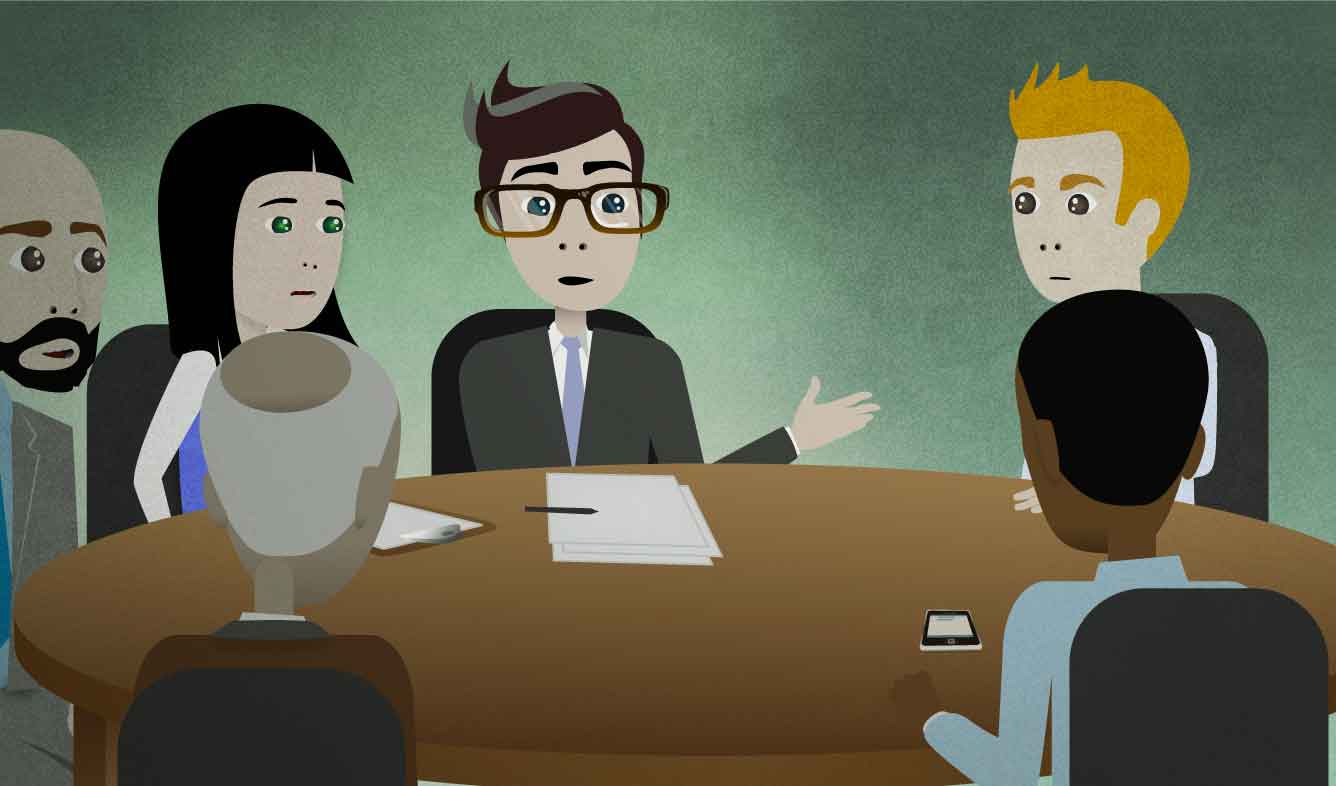“I just wanted to make sure we're all on the same page.”
You're leading a project at work. You called a meeting of some of the people involved on the project. You start the meeting by saying this.
I just wanted to make sure we're all on the same page.
Want Video and Sound? Follow us on YouTube

I wanted to (do something)
A very polite way to explain why you're doing something is "I wanted to ___". For example:
Hi Jen. I wanted to see if you'd like to come out with Emma and I and some friends of ours to a show next week.
Yes, I just wanted to verify that my payment has been received?
Some phrases that can be used after "wanted" include:
I wanted to ask...
I wanted to tell you...
I wanted to check to see if...
I wanted to remind you that...
I wanted to let you know that...
I wanted to find out whether...
Note that this is in past tense: you say "I wanted to ___" instead of "I want to ___". There's no grammatical reason for making it past tense; it just makes your sentence sound more polite. When you say it this way, it sounds like an explanation for why you're calling, why you're visiting, etc.
make sure (clause)
To "make sure" means to check something again, so that you know that it's OK. When you want something to happen and it's important, you check to "make sure" that it happens. For example, before your house guests leave, you can tell them:
Make sure you've got everything.
Or when someone is grilling some meat:
A more formal version of this phrase is "make sure that (clause)":
Make sure that the pork chops are cooked all the way through.
In a corporate office job, people are very careful not to make any mistakes, so they often talk about "making sure" of things.
(some people) are on the same page
If a group of people are "on the same page", it means that they all have the same idea about what's going on. For example, if a group of people are working on a project together and they all know who is in charge of each part of it, then they are "on the same page". If some people think that Mr. A is in charge of something, and other people think that Mr. B is handling it, then they're not "on the same page".
Here are some more examples of how "on the same page" is used:
Just to make sure we're on the same page, you know that this position is unpaid, right?
I think we should all get together and talk, just to make sure we're on the same page.
Yes, I agree. We're definitely on the same page on that.
Here's a good way to remember this phrase: imagine a classroom full of students discussing something in a textbook. If all the students are on the same page in the textbook, they can talk about it productively. But if some of the students are looking at a different page in the book, they'll be confused.
